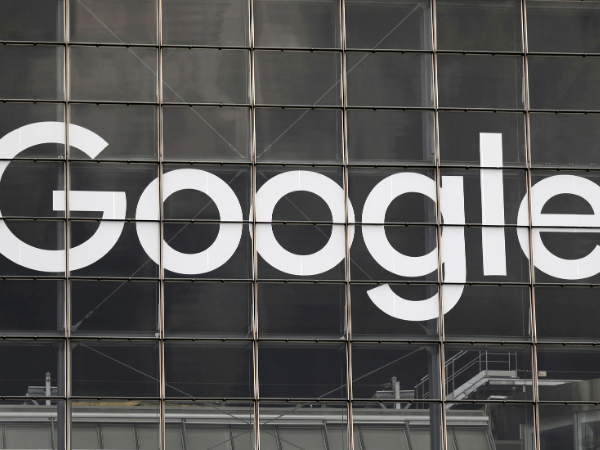Google to invest $7 billion in U.S. offices and data centers
Alphabet Inc’s Google will invest $7 billion in offices and data centers across the U.S. this year, down from the $10 billion last year, and create 10,000 new full-time jobs as it takes on a pandemic-driven surge in internet traffic.
The latest investment includes expansion plans for data centers in Nebraska, South Carolina and Texas, and its offices in Atlanta, D.C., Washington, Chicago and New York.
Google is also spending $1 billion in its home state of California. The move comes at a time when many companies are exiting Silicon Valley after the pandemic triggered a broader shift to remote work, making companies reconsider the state’s higher operational costs and hefty taxes.
The investments would create at least 10,000 new full-time Google jobs, Chief Executive Officer Sundar Pichai said. It currently employs more than 84,000 staff in the country.
In 2020, Google’s services contributed to $426 billion of economic activity in the United States, Pichai added.
(Reporting by Munsif Vengattil in Bengaluru; Editing by Shounak Dasgupta)
Google’s privacy push draws U.S. antitrust scrutiny

A Google search page is seen through a magnifying glass in this photo illustration taken in Berlin, August 11, 2015. REUTERS/Pawel Kopczynski
Google’s plan to block a popular web tracking tool called “cookies” is a source of concern for U.S. Justice Department investigators who have been asking advertising industry executives whether the move by the search giant will hobble its smaller rivals, people familiar with the situation said.
Alphabet Inc’s Google a year ago announced it would ban some cookies in its Chrome browser to increase user privacy. Over the last two months, Google released more details, leading online ads rivals to complain about losing the data-gathering tool.
The questions from Justice Department investigators have touched on how Chrome policies, including those related to cookies, affect the ad and news industries, four people said.
Investigators are asking whether Google is using Chrome, which has 60% global market share, to reduce competition by preventing rival ad companies from tracking users through cookies while leaving loopholes for it to gather data with cookies, analytics tools and other sources, the sources added.
Related Articles
Top 5 CBD Gummies on Amazon
8 Best Practices in Writing Press Releases
The latest conversations, which have not been previously reported, are a sign that officials are tracking Google’s projects in the global online ad market where it and No. 2 Facebook Inc control about 54% of revenue.
The ad inquiry may not lead to legal action.

The logo of Google is seen on a building at La Defense business and financial district in Courbevoie near Paris, France, September 1, 2020. REUTERS/Charles Platiau
Executives from more than a dozen companies from an array of sectors have spoken with Justice Department investigators, one of the sources said.
The government has been investigating Google’s search and advertising business since mid-2019, and last October it sued Google for allegedly using anticompetitive tactics to maintain the dominance of its search engine. It has continued to probe Google’s ad practices.
Investigators also have asked rivals whether they encountered behavior similar to or worse than the advertising-focused accusations that attorneys general from Texas and other states leveled against Google in a lawsuit last December, the people said.
The Justice Department declined comment for this story.
Google defended its ad business, saying it was helping companies grow and protecting users’ privacy from exploitative practices.
“The enormous competition in ad tools has made online ads more affordable, reduced fees, and expanded options for publishers and advertisers,” the company said.
If the Justice Department sues over ads-related conduct, it could file a new lawsuit or join the Texas case, one of the sources said. But antitrust litigation experts said the department also still had time to amend its existing complaint to include the ad tech concerns.
Texas on Tuesday amended its complaint to, among other things, allege that forthcoming changes to Chrome “are anti-competitive because they raise barriers to entry and exclude competition” in web advertising.
‘PRIVACY CONCERNS’
Google has been limiting data collection and usage across several of its services. The Chrome changes would affect ad tech companies that use cookies to collect people’s viewing history to direct more relevant ads to them.
“We don’t believe tracking individuals across the web will stand the test of time as privacy concerns continue to accelerate,” Jerry Dischler, a Google vice president overseeing ad services, told an industry conference last week.
But smaller rivals dismiss the privacy rationale used by big companies such as Google and Apple Inc to restrict tracking since they would continue to collect valuable data and potentially capture even more ad revenue.
“There is a weaponization of privacy to justify business decisions that consolidate power to their business and disadvantage the broader marketplace,” said Chad Engelgau, chief executive of Interpublic Group of Companies Inc’s ad data unit Acxiom.
France’s competition authority on Wednesday temporarily allowed Apple to move forward with new tracking limits, saying privacy protections prevailed over competition concerns.
The UK Competition and Markets Authority is expected to decide soon whether to block the forthcoming Chrome changes.
(Reporting by Paresh Dave in Oakland, California, and Diane Bartz in Washington; Editing by Chris Sanders and Lisa Shumaker)

